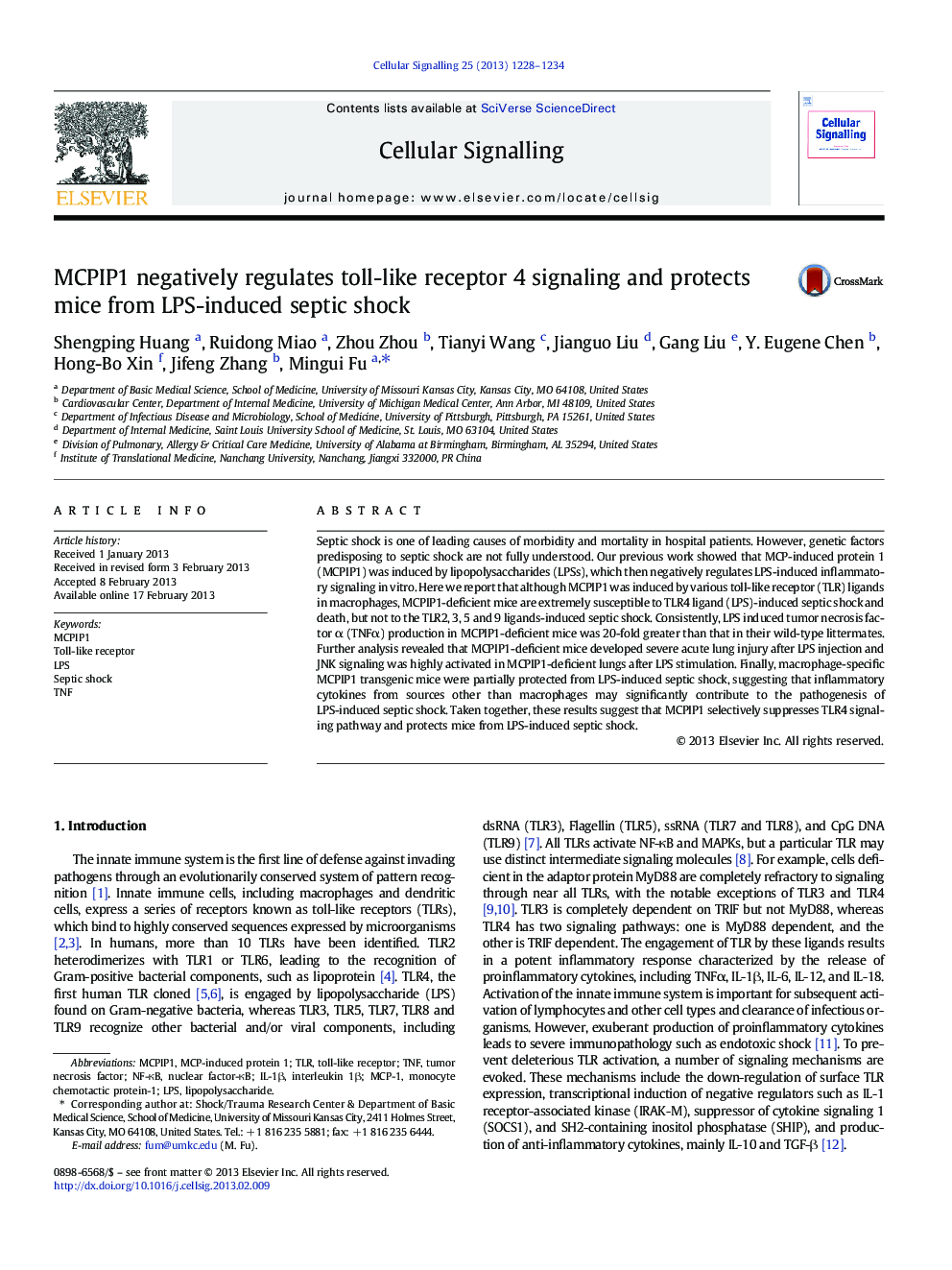| Article ID | Journal | Published Year | Pages | File Type |
|---|---|---|---|---|
| 1963496 | Cellular Signalling | 2013 | 7 Pages |
Septic shock is one of leading causes of morbidity and mortality in hospital patients. However, genetic factors predisposing to septic shock are not fully understood. Our previous work showed that MCP-induced protein 1 (MCPIP1) was induced by lipopolysaccharides (LPSs), which then negatively regulates LPS-induced inflammatory signaling in vitro. Here we report that although MCPIP1 was induced by various toll-like receptor (TLR) ligands in macrophages, MCPIP1-deficient mice are extremely susceptible to TLR4 ligand (LPS)-induced septic shock and death, but not to the TLR2, 3, 5 and 9 ligands-induced septic shock. Consistently, LPS induced tumor necrosis factor α (TNFα) production in MCPIP1-deficient mice was 20-fold greater than that in their wild-type littermates. Further analysis revealed that MCPIP1-deficient mice developed severe acute lung injury after LPS injection and JNK signaling was highly activated in MCPIP1-deficient lungs after LPS stimulation. Finally, macrophage-specific MCPIP1 transgenic mice were partially protected from LPS-induced septic shock, suggesting that inflammatory cytokines from sources other than macrophages may significantly contribute to the pathogenesis of LPS-induced septic shock. Taken together, these results suggest that MCPIP1 selectively suppresses TLR4 signaling pathway and protects mice from LPS-induced septic shock.
► We studied the role of MCPIP1 in toll-like receptor signaling in vivo. ► MCPIP1 selectively suppressed Toll-like receptor 4 signaling and protects mice from LPS-induced septic shock. ► MCPIP1 may be a suitable therapeutic target for Gram-negative bacteria-triggered septic shock.
